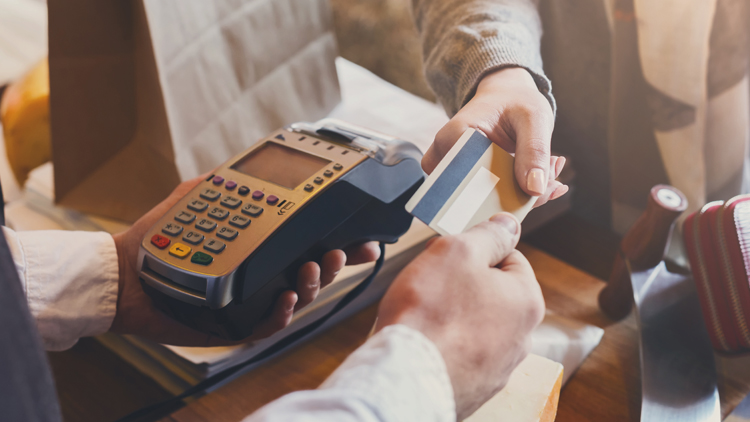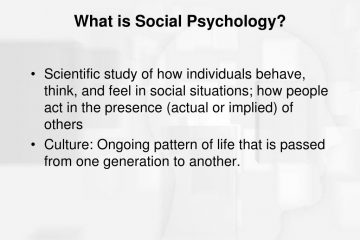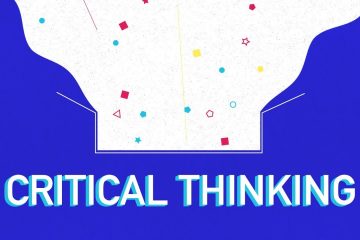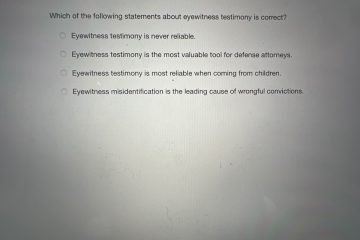Which of the following payment types require you to pay upfront?

Which of the following payment types require you to pay upfront?
A. Money orders & credit cards
Elevate Your Writing with Our Free Writing Tools!
Did you know that we provide a free essay and speech generator, plagiarism checker, summarizer, paraphraser, and other writing tools for free?
Access Free Writing ToolsB. Money orders & pre-paid cards
C. Merchant cards & credit cards
D. Merchant cards & pre-paid cards
Answer; B. money orders and pre-paid cards.
What is a Money Order?
A money order is a type of check that resembles an actual check, but the funds for the transaction are transferred electronically and it can be purchased in any branch of a bank. A money order does not require the sender to go to the bank or post office in person, and it can be sent instantly. The recipient also can cash a money order without leaving home by depositing it at any branch of their local bank.
Are you struggling to get answers for your economics questions? Stress no more! You can seek help from a reputable economics homework help service like Gudwriter which is the best and trustwothy service when it comes to college economics homework help.
How is it Paid?
Money orders can be paid with cash, personal checks, traveler’s checks, bank checks, or cashiers’ checks. When paying with a cashier’s check, a money order must be drawn from a bank that is acceptable to the issuing bank. The issuing bank will note this information on the face of the money order along with the amount of paper it was paid for.
What is a Prepaid Card?
Prepaid cards are one of the fastest growing financial services in the U.S. Unlike credit cards, prepaid cards are paid for in advance and allow users to budget their spending. Unlike debit cards, prepaid cards are not connected to a checking account and so users cannot spend more than what is loaded onto their card. This helps to avoid overdraft fees or embarrassment over having a negative balance.
How is it used?
Prepaid cards can be used at retailers, online, and by phone. Unlike credit card transactions, a prepaid card transaction cannot be reversed once the merchant receives payment.
Prepaid cards are safe to carry and can save the user money in fees because it allows them to avoid overdrafts and late fees associated with checking accounts.
What is a Credit Card and how is it used?
A credit card is a plastic card issued by a bank or other financial institution that allows its holder to borrow money and make purchases. Credit cards are available in many different forms, including charge cards, debit cards, demand deposit accounts, and prepaid cards.
Credit card users typically need to pay their balance in full each month and incur interest charges for any borrowed amounts which remain unpaid for a period of time.
What is a Merchant Card and how is it used?
A merchant card is a credit card that is issued to a business. The cardholder is not the actual business and, therefore, will not be responsible for making purchases. Rather, merchants that accept this type of card use it as a form of payment.
Perhaps you might be interested in reading an Explication essay on The Road Not Taken by Robert Frost.
Question 2: Which of the following is true?
A. Checks and Debit Cards both withdraw money directly from a bank account.
B. Checks are the most widely accepted form of payment
C. Debit Cards often have a higher interest rate than Credit Cards.
D. Debit cards offer the highest level of fraud protection.
Answer; B. Checks and Debit Cards both withdraw money directly from a bank account.
Question 3: Which of the following is NOT true of credit cards?
A. They offer the highest level of fraud protection.
B. They are the best payment type to use when trying to stick to a budget.
C. You can be charged a fee if you are late making a monthly payment.
D. Some offer rewards, like cash back or airline miles.
Answer; B. They are the best payment type to use when trying to stick to a budget.
Question 4: Which of the following statements comparing debit cards to credit cards is TRUE?
A. Debit cards allow you to draw funds directly from your checking account.
B. Debit cards typically offer greater fraud protection than credit cards.
C. Debit cards never require a signature to finalize a purchase like credit cards.
D. Debit cards charge higher interest rates on purchases than credit cards.
Answer; A. Debit cards allow you to draw funds directly from your checking account.
Question 5: Which of the following tells you how much your credit card interest will be if you only pay the minimum balance each month?
A. Late Fee
B. Annual Membership Fee
C. Balance Transfer Fee
D. Annual Percentage Rate
Answer; D. Annual Percentage Rate
Question 6: Which payment method typically charges the highest interest rates?
A. Credit cards
B. Cashier’s checks
C. Pre-paid cards
D. Payday loans
Answer; D. Payday loans
Question 7: The annual percentage rate on a credit card determines _______.
A. the amount of interest you are charged on credit card purchases
B. the amount your credit limit can go up within a year
C. how many credit cards you can own
D. None of the above
Answer; A. the amount of interest you are charged on credit card purchases
Question 8: Which payment type can help you stick to a budget?
A. Credit cards
B. Debit cards
C. Payday loans
D. Cash advances
Answer; B. Debit cards
Question 9: What is the amount of money you still owe to their credit card company called?
A. Credit Card Interest
B. Credit Card Balance
C. Credit Card Limit
D. Credit Card Fee
Answer; B. Credit Card Balance
Question 10: If you are planning to carry a large balance on your credit card, which of the following credit card features should you look for?
A. Low APR
B. Low balance transfer fee
C. Lots of credit card rewards
D. A large credit limit
Answer; A. Low APR
Question 11: Making a credit card minimum payment:
A. Means you are paying a small portion of your total credit card debt
B. Is the same thing as making a late credit card payment
C. Will have a negative effect on your credit score
D. Will cause your credit card to be canceled
Answer; A. Means you are paying a small portion of your total credit card debt
Question 12: Which of the following will happen if you miss a monthly credit card payment?
A. You will be charged a late fee
B. You lose reward points
C. Your APR will increase the next month
D. Both A and B
Answer; D. Both A and B
Question 13: Which of the following is true of both paying with a check and paying with a debit card?
A. Both are accepted by most people and most businesses.
B. A personal identification number must be used anytime checks or debit cards are used.
C. When used, both take money directly out of a bank account.
D. Both work like a loan from your bank that you can pay back later.
Answer; C. When used, both take money directly out of a bank account.
Question 14: Which of the following can increase your credit cards APR?
A. Paying the minimum
B. Missing a credit card payment
C. Paying off the full balance
D. Cashing in on rewards points
Answer; A. Paying the minimum
Question 15: What is a credit limit?
A. The required payment to your credit card company.
B. The amount of interest you are charged each month.
C. The maximum amount you can charge each billing cycle.
D. How many credit cards you can own.
Answer; C. The maximum amount you can charge each billing cycle.
Question 16: The amount of money you can charge to a credit card is called:
A. Annual Percentage Rate
B. Balance Transfer
C. Credit Limit
D. Annual Fee
Answer; C. Credit Limit
Question 17: What is a credit card balance?
A. The amount of interest you must pay the credit card company
B. The required minimum payment to your credit card company
C. A way to track your incoming and outgoing purchases
D. The amount of money you still owe to the credit card company
Answer; D. The amount of money you still owe to the credit card company
Question 18: Which of the following are true if you pay only the minimum amount each month towards your credit card bill?
A. You will be charged interest on your remaining balance.
B. Your Annual Percentage Rate will increase.
C. You may be in debt for a long time.
D. Both A and B are true.
Answer; B. Your Annual Percentage Rate will increase.
Question 19: Which of the following is NOT a common credit card fee?
A. Late fee
B. Annual membership fee
C. Balance transfer fee
D. Minimum payment fee
Answer; D. Minimum payment fee
Question 20:Which payment type is best if you are trying to stick to a budget?
A. Credit Card
B. Debit Card
C. Cash Advance
D. Payday Loan
Answer; B. Debit Card
Question 21: What is the difference between a debit card and a credit card?
Debit cards can be used to buy items using money from your bank account. Credit cards can also be used to borrow money, but they are not backed by an account balance. They are secured with a promise for a future payment, which means that you won’t need to worry about making payments on your card each month.
Credit cards tend to have higher interest rates and better rewards programs than debit cards.
Question 22: What is the similarity between a debit and a credit card?
Debit and credit cards are both used to make purchases when they are available. They both have a balance that must be paid off by the end of the month, and they can only be used at certain locations. Both debit cards and credit cards have an assigned card number that will allow the merchant to process payment.
Question 23: What happens if you pay more than the minimum balance on your credit card each month?
It reduces your credit utilization ratio, which raises your credit score.
Question 24: What is the best strategy to avoid paying interest on your credit cards?
Paying off your balance monthly and avoiding carrying a balance is the best strategy to avoid paying interest on your credit cards.
Question 25: What are the 3 methods of payment?
1. Cash
Cash is a method of payment where a customer will have direct contact with a company and conduct the transaction by handing money over, either in person or through an automated teller machine. This can be the most reliable method of payment as it is the most personal, but it is often difficult to enforce. It is also not a very safe way to conduct business as the cash is generally not very secure and it can be stolen or lost.
2. Cheque
A cheque is a way of conducting business where instead of a customer handing over cash, the customer writes out a cheque and hands it over. There are many more security measures to prevent fraud using this method however this type of payment can still be stolen or forged.
3. Debit Card
A debit card is a card used to withdraw money from an account by inserting it into a machine. It is much more secure than the other two methods of payment as it immediately transfers the money out of a business account, making it very easy to keep track of how much money is being withdrawn. However, this can be risky for business as some people may be dishonest about how much money they are taking.
Related Economics Questions
- All of the following components are commonly found in rental housing agreements except:
- In a free-enterprise system, consumers decide?
- Which of the following is not a cost typically associated with owning a car?
- Which of the following types of financial aid do not require you to pay the money back?
- What is one benefit of purchasing saving bonds?
- Which of the following is a unique feature of credit unions?
- Which helps enable an oligopoly to form within a market?
- All of the following make up the big three credit reporting agencies except:
- Which statement is not true regarding a straight life policy?
- Which of the following is an example of derived demand?

Special offer! Get 20% discount on your first order. Promo code: SAVE20


